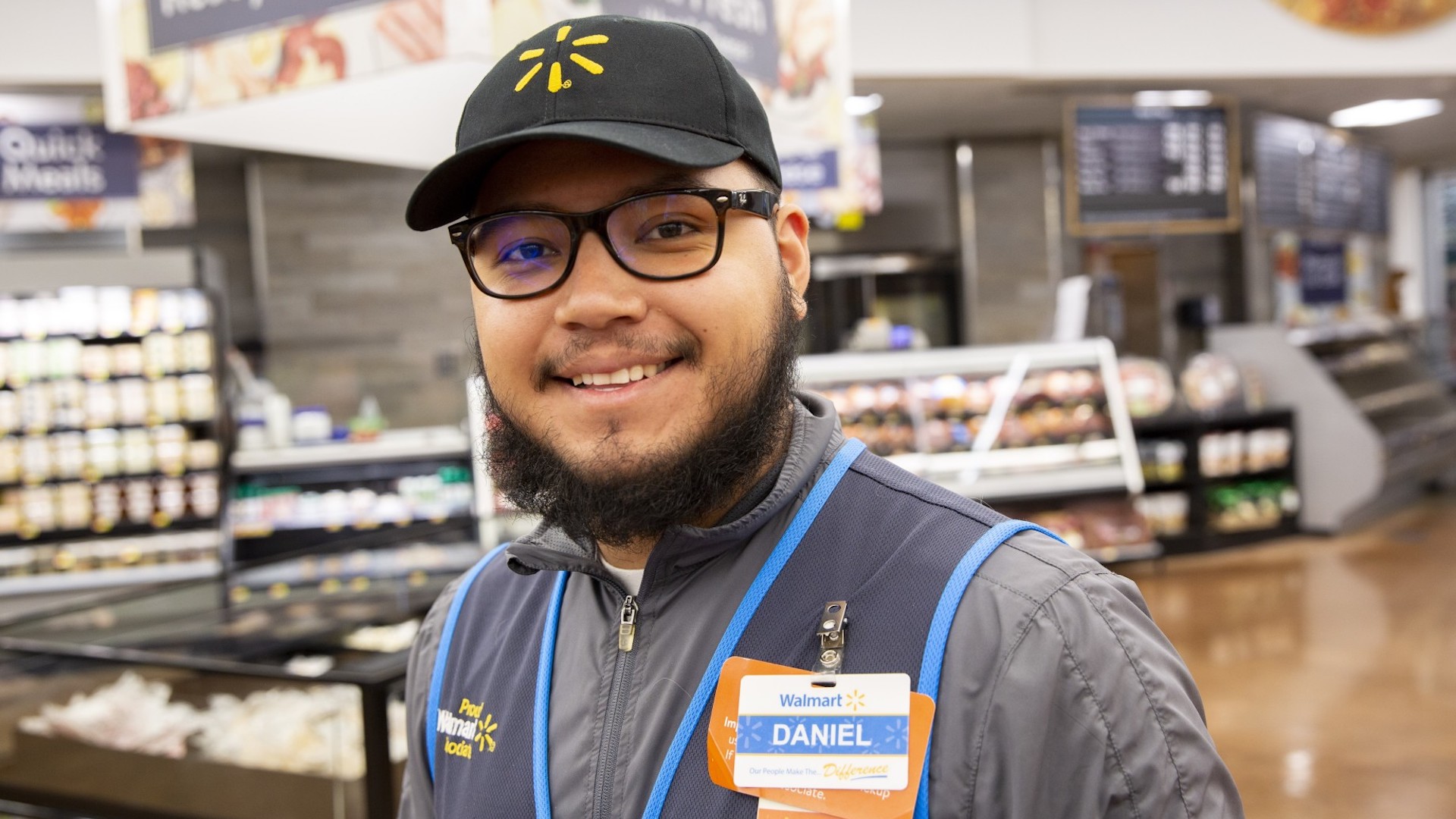| | | | | | | Presented By Walmart | | | | Axios What's Next | | By Jennifer A. Kingson, Joann Muller and Erica Pandey ·Sep 02, 2021 | | As gig work grows more pervasive, so do the pitfalls for people who are drawn to it — or forced into it, as Erica Pandey explains. - The winner of today's What's Next photo competition is Rebecca Hyde, who took the picture while on vacation in Chatham, Massachusetts. Check out what she saw there, at the bottom of this newsletter.
- Your photo could be next! Send us one of your shots and tell us what it says about our ever-evolving lifestyles: whatsnext@axios.com.
Today's Smart Brevity count: 1,089 words ... 4 minutes. | | | | | | 1 big thing: The overlooked perils of gig work |  | | | Illustration: Sarah Grillo/Axios | | | | Not only does gig work come with low and unpredictable wages, but gig workers — who make up an increasing percentage of the workforce — can also have a difficult time accessing government benefits and social services, as Erica writes. What's happening: While plenty of resources exist to help gig workers find jobs, new apps like Steady are helping them access the types of career support, mentoring and benefits that on-the-books corporate employees enjoy. The problem: Our society is structured to support people in traditional jobs, but more and more people are doing gigs — and getting left behind. - Income verification: Many gig workers are classified as independent contractors, and many are making money from a number of gigs, which makes it hard — or even impossible — to verify income and qualify for benefits.
- Benefits: Gig workers were not eligible for unemployment insurance before the CARES Act, and they're still not eligible for some other temporary benefits, including COVID-19 paid leave. The pandemic exposed these issues, Alex Rosenblat of the Aspen Institute writes in the Harvard Business Review.
- Federal assistance: It's also difficult for gig workers to qualify for types of assistance like SNAP benefits and Medicaid, says Adam Roseman, co-founder of Steady, a financial services app for gig workers.
Driving the news: Steady is out with a new feature called Income Passport, which verifies gig workers' income so they can more seamlessly access benefits. - It's an online platform for gig workers that compiles data on their earnings, clues them in on new job opportunities and even offers cash to tide them over during hard times.
- "It's like a hub for gig workers," says Denae, a gig worker in Baltimore and a user of the app. "It bridges the gap for me." When Denae crashed her car — her main source of income as a delivery and ride-share driver — Steady sent her money for groceries.
- Shaquille O'Neal, the former NBA player and a co-founder of Steady, reminded Axios in an interview that gig work was around long before the pandemic. "This is reality," he said. "This is what my parents did. My dad drove trucks on the weekends to buy me shoes."
What to watch: Look for the rise in gig work to give rise to even more startups to provide resources and data to the workers. Read the full story |     | | | | | | 2. NASA to measure the noise of Joby's electric air taxi |  | | | A Joby electric air taxi. Photo: Joby Aviation | | | | NASA and Joby Aviation are kicking off acoustic measuring tests as part of a program to promote public confidence in emerging aviation markets, Joby announced Wednesday, Axios' Andrew Freedman writes. Why it matters: If electric air taxis are to gain wide adoption, they need to be quiet, so measuring their precise noise footprint gives Joby an early mover advantage. The big picture: The testing, Joby says, will make the company the first to fly an all-electric vertical takeoff and landing (eVTOL) aircraft as part of NASA's Advanced Air Mobility Campaign. - Joby went public on the New York Stock Exchange last month and aims to start commercial use of its tilt-rotor aircraft in 2024.
How it works: The two-week test will take place at Joby's base near Big Sur, California, where NASA has deployed more than 50 pressure ground plate microphones to measure the aircraft's sound emissions from multiple directions. - Joby's blades and other components were designed to avoid the loud "whop, whop, whop" sounds made by traditional helicopters.
What's next: Joby is aiming to gain FAA certification of its four-seat, zero-emissions electric air taxis in 2023. Read the full story |     | | | | | | 3. Popular gunshot technology with "serious flaws" |  Data: ShotSpotter; Map: Will Chase/Axios AI-powered technology installed in more than 100 U.S. cities is under fire for failing to reduce gun violence and increase weapons-related arrests, writes Alayna Alvarez of Axios Denver. Driving the news: A new Associated Press investigation calls out "serious flaws" in using ShotSpotter — a network of sensors installed on telephone poles or streetlights that detects gunshots and alerts police officers — as a reliable public safety tool. - The report found the system can overlook live gunshots "right under its microphones" and fire off false alarms when other loud pops, like fireworks or cars backfiring, happen nearby.
- Some judges have thrown out ShotSpotter evidence, and others have mistakenly put people in jail, the AP reports. People of color tend to be at most risk of being unfairly targeted, because the system is typically placed in crime hotspots, often disproportionately Black and Latino communities.
- ShotSpotter is also expensive — annually costing cities up to $95,000 per square mile. Researchers have determined policy solutions may prove a more "cost-effective" route to reducing gun violence.
By the numbers: In Denver, for example, the contract with ShotSpotter costs $835,438 a year, according to the Denver Police Department. - Meanwhile, gun violence in Denver continues to soar.
- Homicides are up 50% over the three-year average, Denver police chief Paul Pazen said at a news briefing last month.
 Data: Denver Police Department; Chart: Axios Visuals Yes, but: A 2019 Urban Institute study found that gunshot detection technology can be a "powerful tool" that helps prosecutors and police better keep communities safe. Read the full story |     | | | | | | A message from Walmart | | Largest U.S. private employer commits nearly $1B in career training | | |  | | | | Walmart will now pay 100% of college tuition and books for associates through its Live Better U education program. Key numbers: | | | | | | 4. Culinary notes from all over |  | | | Mole sauce is ladled on a Thanksgiving turkey dinner at Rosa Mexicano restaurant in New York City in 2020, after restaurants there were allowed to open partially amid the pandemic. Photo: Alexi Rosenfeld/Getty Images | | | | Thanksgiving turkeys may be harder to come by this year (Lisa Fickenscher — New York Post) - "Meat producers and distributors are sounding the alarm over a turkey shortage that has supermarkets and other food retailers scrambling to get ready for the holiday," the Post reports, adding that "the shortfall is expected to mainly affect fresh turkeys and birds under 16 pounds, which tend to be the most popular."
- The problem will likely continue through Christmas.
7-Eleven introduces beer, wine delivery (Specialty Food Association) - The service, which 7-Eleven is doing in partnership with a company called Minibar Delivery, will debut at 600 stores in Virginia, Florida and Texas, then expand later this year.
Water Pie was a Depression-era treat — why are people into it now? (Valerio Farris — Food 52) - Water Pie — which, depending on which recipe you follow, can contain just flour, water and butter and sugar, or vanilla as well — is making a comeback via exposure on TikTok and elsewhere. This article attributes interest in the pastry to parallels between the COVID-19 era and the Great Depression.
|     | | | | | | 5: Reader photo of the day |  | | | Photo: Rebecca Hyde | | | | What's Next: Enhanced reminders to behave appropriately during COVID. Rebecca Hyde writes: "I worked in customer service throughout the pandemic, so I know what it's like to be a nag — to be the person who must educate and remind clients of the COVID protocols. "In July, while on a weeklong break, I walked into the Chatham, Mass., Public Library and found these wonderful signs — protocol reminders attached to life-sized cut-outs of the library staff. Creativity wins the day!" |     | | | | | | A message from Walmart | | Walmart to pay college tuition for nearly 1.5M eligible associates | | |  | | | | Walmart is focused on creating a ladder of opportunity for associates to learn and grow by offering programs like Live Better U, which now pays for 100% of college tuition and books for eligible U.S. associates. Why it's important: Over 52,000 associates have enrolled since 2018. | | | | Getting ready for Labor Day weekend? Be on the lookout for photos that speak to What's Next in our lives! Send 'em to whatsnext@axios.com. And please tell everyone at your barbeque to sign up for Axios What's Next. |  | | It'll help you deliver employee communications more effectively. | | | | | | Axios thanks our partners for supporting our newsletters. If you're interested in advertising, learn more here.
Sponsorship has no influence on editorial content. Axios, 3100 Clarendon Blvd, Suite 1300, Arlington VA 22201 | | | You received this email because you signed up for newsletters from Axios.
Change your preferences or unsubscribe here. | | | Was this email forwarded to you?
Sign up now to get Axios in your inbox. | | | | Follow Axios on social media:    | | | | | |











No comments:
Post a Comment